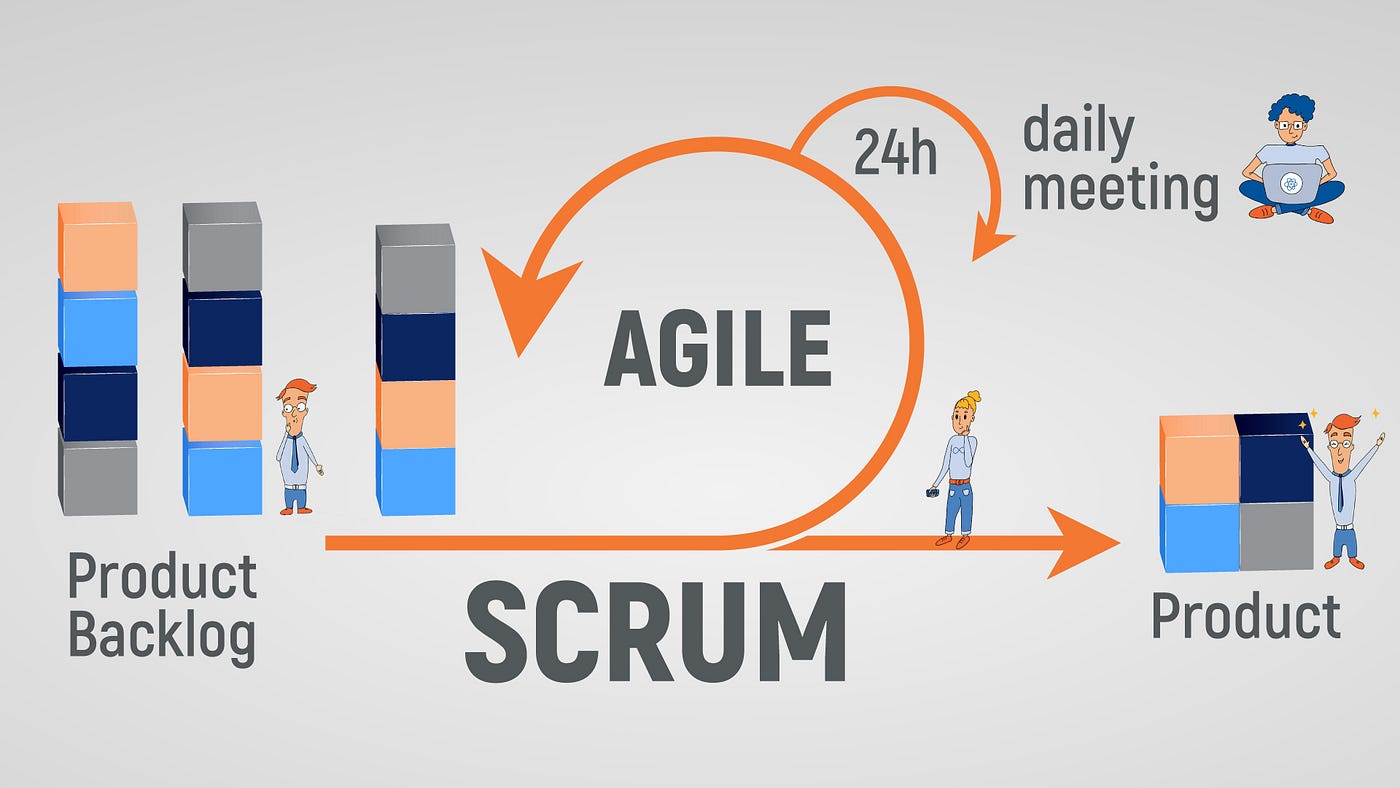Scrum for Startups: Accelerating Growth with Agile
In the fast-paced world of startups, agility is not just an advantage—it's a necessity. Scrum, with its iterative and collaborative framework, provides a roadmap for startups to navigate uncertainty, adapt to change, and accelerate growth. This exploration delves into the application of Scrum principles in the startup ecosystem, uncovering how Scrum becomes a catalyst for innovation, collaboration, and sustainable growth.
1. Agility as a Startup Imperative
Startups operate in a landscape of constant change and uncertainty. We'll explore how agility becomes a strategic imperative for startups, enabling them to respond swiftly to market shifts, learn from customer feedback, and iteratively refine their products to meet evolving needs.
2. The Scrum Framework: Agile Foundations for Startups
Scrum serves as the agile backbone for startups. We'll delve into the core elements of the "What Is Scrum" framework, including roles (Product Owner, Scrum Master, Development Team), ceremonies (Sprint Planning, Daily Standup, Sprint Review, Sprint Retrospective), and artifacts (Product Backlog, Sprint Backlog, Increment), and discuss how they align with the startup ethos.
3. Minimum Viable Product (MVP) in Scrum
The concept of Minimum Viable Product (MVP) aligns seamlessly with Scrum principles. We'll explore how startups can leverage Scrum to define, build, and iterate on their MVP, ensuring a rapid and focused approach to testing ideas, gathering feedback, and delivering value to early adopters.
4. Sprint Planning for Startup Success
Sprint Planning sessions are the heartbeat of Scrum. We'll discuss how startups can conduct effective Sprint Planning, prioritize features based on customer value, and set achievable goals for short iterations. This approach ensures that startups deliver increments of value regularly, maintaining momentum and adaptability.
5. Customer-Centric Development with Scrum
Startups thrive when they deeply understand and address customer needs. We'll explore how Scrum promotes customer-centric development, emphasizing continuous customer feedback, user stories, and iterative improvements. This customer-focused approach ensures that startups build products that resonate with their target audience.
6. Rapid Iteration and Adaptation
In the startup realm, the ability to iterate rapidly and adapt is a competitive advantage. We'll discuss how Scrum's iterative development cycles, short sprints, and regular inspection and adaptation contribute to the startup's ability to learn quickly, pivot when needed, and continuously optimize their approach.
7. Scrum for Cross-Functional Collaboration
Effective collaboration is the lifeblood of startup success. We'll explore how Scrum's emphasis on cross-functional, self-organizing teams fosters collaboration, breaks down silos, and ensures that startups leverage the diverse skills of their team members to drive innovation and problem-solving.
8. Scaling Scrum for Startup Growth
As startups scale, Scrum scales with them. We'll discuss how startups can effectively scale Scrum, adopting frameworks like Scrum of Scrums or Large-Scale Scrum (LeSS), to maintain "What Is Agile" while growing their teams and product offerings.
9. Scrum Retrospectives for Continuous Improvement
Continuous improvement is ingrained in the startup DNA. We'll explore how Scrum Retrospectives provide a structured space for startups to reflect on their processes, celebrate successes, and identify opportunities for enhancement. This commitment to continuous improvement ensures that startups evolve with each iteration.
10. Overcoming Startup Challenges with Scrum
Startups face unique challenges, from resource constraints to market uncertainties. We'll discuss how Scrum equips startups to navigate these challenges, offering practical solutions for maintaining focus, managing priorities, and fostering a culture of resilience and adaptability.
Embracing Scrum is not just a methodology shift for startups—it's a strategic move toward sustainable growth and innovation. Whether you're a founder, product manager, or team member in a startup, this guide promises valuable insights into leveraging Scrum principles to accelerate growth, navigate uncertainties, and build products that resonate with customers in the dynamic startup landscape.

Comments
Post a Comment